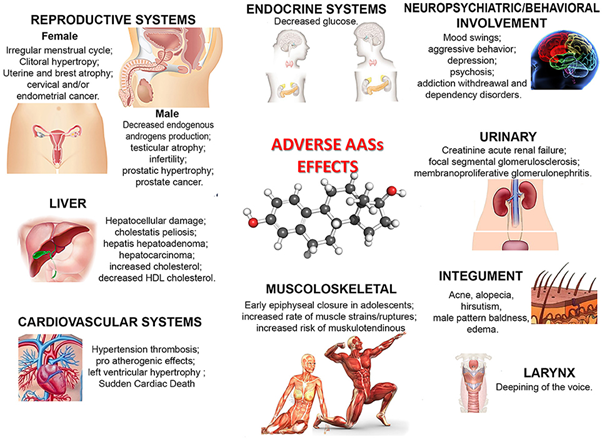

Context
From two Tokyo Olympians being banned to Noida Police seizing fake drugs and supplements worth Rs 2 crore, anabolic steroids have often been in news.
About
What are anabolic steroids?
- Anabolic steroids are essentially lab-made versions of the male hormone testosterone and have a similar effect of increasing muscle mass as the natural hormone does.
- It also increases male characteristics in a person, such as facial hair and a deeper voice.
- These are, however, very different from the steroids that are prescribed by doctors for inflammations, several autoimmune diseases, or to suppress the body’s immune system during a Covid-19 infection.
- These medicines are called corticosteroids and are lab-made molecules that mimic the action of the hormone called cortisol that controls the body’s stress response, metabolism, and inflammation.
- Unlike corticosteroids, anabolic steroids have limited medical use. “Anabolic steroids are mainly misused by athletes and sportspersons nowadays.
- Years ago, it was rampantly used by bodybuilders and was given to them in pudiyas.
- Although this practice is fading away, people still take it following the advice of their gym trainers.
What are they prescribed for?
- The anabolic steroids have a very limited medical role and are mainly used by doctors to help patients gain weight after a severe illness or injury.
- It could also be prescribed in small doses to the elderly to build muscle mass and in some cases also helps to treat anaemia.
- Doctors may also prescribe the medicine to men who have low levels of natural testosterone.
What are the health impacts?
- Use of anabolic steroids in the short-term can cause acne and hairfall. Extended misuse of the substance can also lead to gynaecomastia (growth of breasts in men) and erectile dysfunction.
- In women, it can lead to growth of facial hair.
- It may also cause extreme anger, paranoia, and impaired judgement.
- Long-term use can lead to kidney disease and even failure, liver damage and tumours, enlarged heart, and high blood pressure.
- It can also lead to stunted growth in teenagers.



